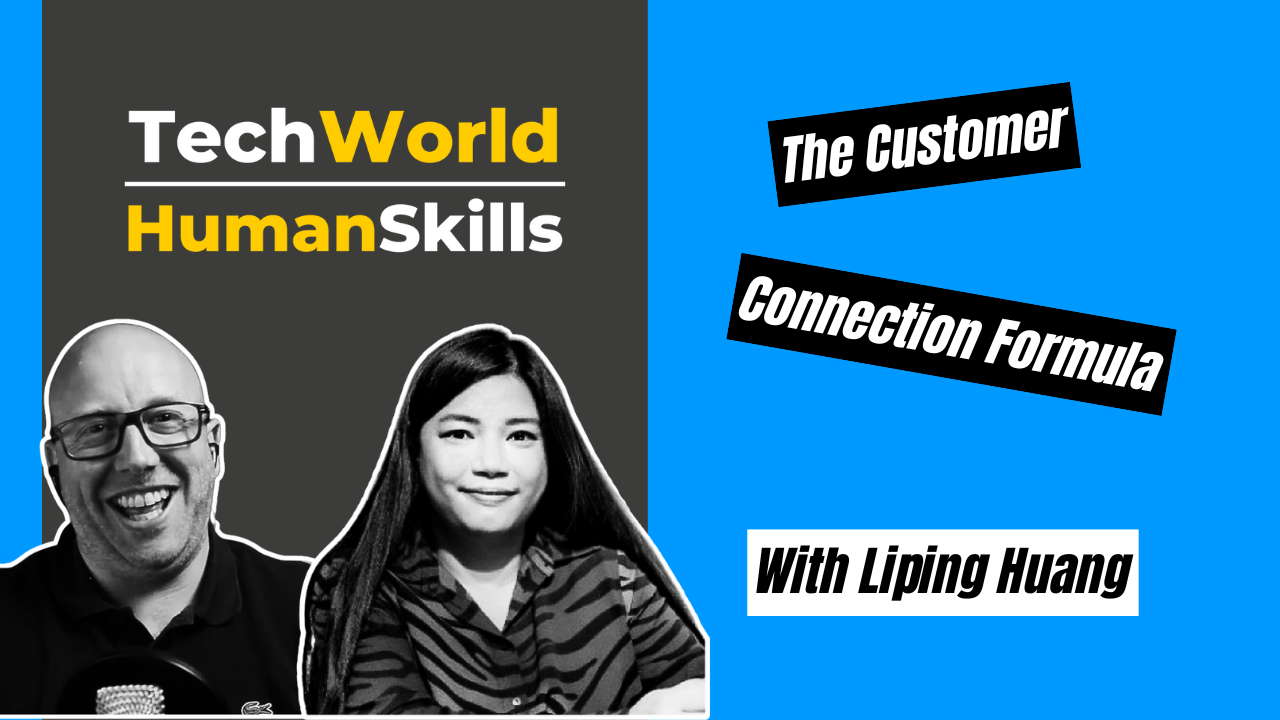TWHS#087: Being Smart Isn't Enough: How to Build Real Customer Relationships
Sep 30, 2025
I just recorded a podcast episode with Liping Huang—former Solutions Architect at Microsoft and Databricks, now running DataLeaps. We talked about something crucial that gets overlooked in tech: knowing your stuff isn't enough.
You can be the smartest person in the room, but if you can't build rapport with customers, success will be limited.
Here's some of the highlights, but check out the full episode for the full experience.
Why Relationships Matter
Two reasons this matters more than you think:
First, when customers have a problem to solve, you want to be the first person they call. They're surrounded by advisors just as capable as you. But if you've built the better relationship, you get first crack at solving their challenges.
Second, it opens doors for your career. Liping hasn't applied for a job in ten years. The relationships she's built have created opportunities that simply find her.
The Foundation: Get Technical First
You don't need to know everything. But you can't be in meetings where every question gets answered with "I'll find out and get back to you." That's a waste of everyone's time. You need a great technical foundation.
Here's the critical skill: knowing when to say "I don't know." As Liping put it, throwing answers at the wall hoping something sticks destroys trust faster than admitting knowledge gaps. Say you don't know, write down the question, then follow up promptly.
Build Your Empathy Muscle
Don't sell for the sake of selling. Understand your customer's challenges first.
Your counterpart isn't measured on how much of your technology they consume. They're measured on solving business problems. Put yourself in their shoes: What keeps them up at night? What senior leader presentation do they need to nail next week?
Ask questions like "If I could help you with anything, what would it be?" Don't be afraid to probe deeper. The answers guide you toward genuinely helping rather than just pitching.
Make Complex Things Simple
You work with your technology every day. Your customers probably don't.
Whether you're talking to day-to-day practitioners or senior executives who've moved away from the technical trenches, you need to explain value clearly. Use analogies. Tell stories. Make it relatable.
Liping's example: Don't walk up to a customer and immediately talk about your platform's performance. That's like walking up to someone in a bar and leading with how great you are. Talk about them first. Understand their needs. Then show how you can help.
Be Helpful and Likeable
Simple things matter: Smile. Listen actively. Follow through on commitments.
If you get asked the same question three times, turn it into reusable content—a blog post, a video, a quick reference guide. This scales your helpfulness across all your customer interactions.
Your Next Step
Analyse yourself honestly. Where are your gaps? Technical depth? Empathy? Communication? Analogies?
Pick one area and build a development plan.
Remember BAT: Belief (you can improve), Attention (ring-fence time for it), Technique (learn from others how to do it).
The unicorns in tech—the ones who'll thrive as AI handles more of the technical heavy lifting—are people with both deep technical skills and strong human skills.
Check out the podcast episode the whole conversation.
Hope this helps.
BenP
-------------------------------------
Whenever you're ready, there are 3 ways I can help you:
- Leaders In Tech: Raise the impact of your team. Make them more influential, memorable and successful. The Technical Storytelling Professional Program enables them to create clarity, generate energy and drive the results you need.
- Individuals: Accelerate your career and build your reputation. Develop the skills to help you present, influence and explain in the tech world. Check out the Technical Storytelling Essentials or Tech Community Speaker courses.
- Tech World Human Skills Podcast: The latest episode is "The Customer Connection Formula" with Liping Huang. Check it out on the Elevated You website, Apple, Spotify, YouTube or Amazon Podcasts.



